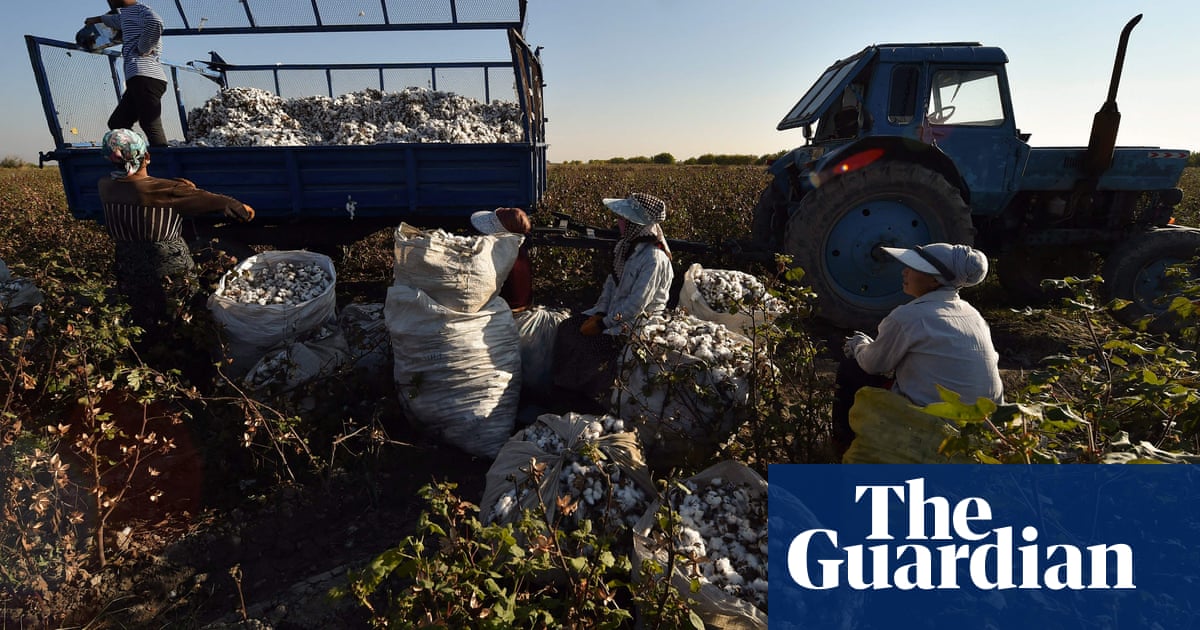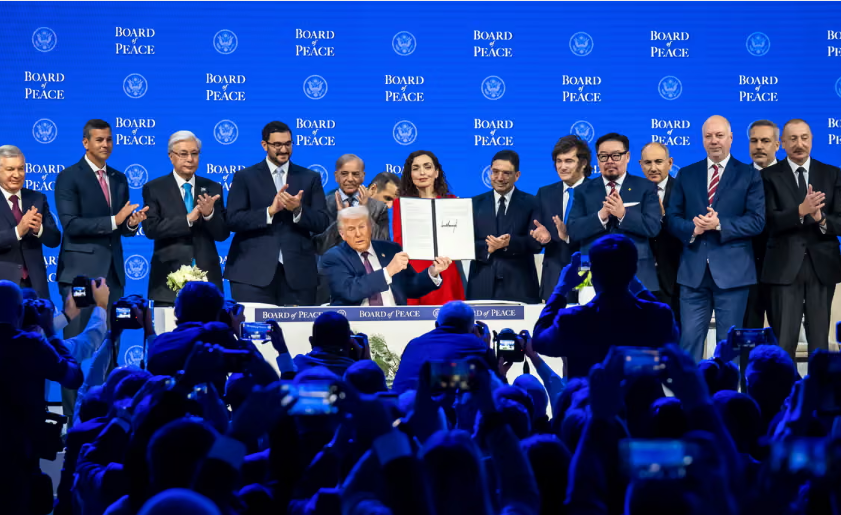Coalition accused of stalling ban on imports made using slave labour
The Morrison government has been accused of stalling action to prevent the importation of goods made using slave labour, as it insists it needs more time to consult business and upgrade IT systems.
Despite repeatedly raising concerns about forced labour practices in China’s Xinjiang region, the government has cited “practical challenges” in a new report explaining why it cannot immediately take up recommendations of a bipartisan committee.
Anti-slavery campaigners say they are “disillusioned that the ‘fair go’ values we hold as a people are not reflected in this government response”.
A Senate committee chaired by the Liberal senator Eric Abetz had called for the Customs Act to be amended “to prohibit the import of any goods made wholly or in part with forced labour, regardless of geographic origin”.
The committee, whose deputy chair was the late Labor senator Kimberley Kitching, had also pushed for a US-style system to tighten scrutiny of specific goods, companies and regions with a particularly high risk of forced labour.
The Australian Border Force should then consider restricting cotton from Xinjiang, according to the Senate’s foreign affairs, defence and trade legislation committee’s unanimous report last year.
However, in a formal response tabled quietly after the election caretaker period began, the government said only that it agreed “in principle” with those recommendations.
The government said it would “work with domestic and international partners to further explore the merit and feasibility” of the proposed changes, but raised “significant practical, administration and enforcement challenges”.
It said “intelligence, IT systems and operational activities” were not at the level required to reliably determine whether forced labour had been used in the manufacture of imported goods. One major reason was “the complexity of modern day supply chains”.
Such a change would require an “expensive” and “long term overhaul of the current regulatory framework and supporting IT systems”.
Carolyn Kitto, the Sydney-based co-director of Be Slavery Free, said this admission from the government was “more than a little embarrassing”.
She said: “Would we prefer that Australian businesses doing the right thing are placed at a competitive disadvantage to those who are knowingly or unknowingly using forced labour in producing products while we wait for IT systems to get updated in the Department of Home Affairs?
“Actually, the systems and processes exist. Let’s get on with it.”
Kitto said Australia would not be acting alone if it banned the import of products made with forced labour, given “the countries we share intelligence and data with are already enacting this kind of legislation”.
“The USA is doing it, the UK is doing it, the EU is doing it, Japan is talking about it. Canada has been doing it,” she said.
The Modern Slavery Act that passed the parliament in 2018 is limited in its scope, with only Australia’s biggest companies – those with annual revenue of more than $100m – required to submit annual statements on the steps they are taking to address modern slavery in their supply chains and operations.
Critics say that law is weak because it does not include any fines for breaches.
One of the measures proposed by the Senate committee is similar to “withhold release orders” that have operated in the US for years. This tool would allow the ABF to designate targeted goods as having been made with forced labour unless companies can prove otherwise.
In response, the government reiterated that it was “concerned with the reports in relation to forced labour in Xinjiang” but noted “that before any such steps could be carefully considered by government, it will consult in depth with industry and business”.
The government said it believed Australian businesses should voluntarily put in place due diligence policies – something it saw as “a preferable initial mechanism to government-enforced prohibitions”.
But Kitto said: “Imagine if we applied the same principles of agnostic, voluntary responses to security, taxes and foreign aid.”
Before the election campaign began, the government formally launched a scheduled review of the Modern Slavery Act.
The government said the review would consider “whether additional measures such as penalties or an Independent Anti-Slavery Commissioner are required”.
The South Australian independent senator Rex Patrick said the government’s response “bears all the hallmarks of a government prior to an election trying to look like they’re doing something but without any real commitment or urgency”.
“Once again we see the Liberal-National Coalition government wanting to push everything aside by saying they will conduct a review,” Patrick said.
Patrick’s bill to tighten the Customs Act passed the Senate last August with the support of Labor and the Greens, but it never took effect because it did not get the nod from the Coalition-controlled lower house.
Be Slavery Free vowed to work with MPs and senators after the election to ensure they understood what was at stake for Australia and Australian businesses if no action was taken.
Abetz did not respond to requests for comment on the government’s response to his committee’s report.
Labor has signalled it would toughen the Modern Slavery Act to penalise businesses that failed to remove risks in supply chains, citing “a growing number of horrifying reports of forced labour and human rights violations in China and in many other countries”.
China denies all allegations of forced labour in Xinjiang or of human rights abuses against Uyghur Muslims and other minorities, but the US government and several western parliaments have labelled the Chinese government’s actions as “genocide”.













